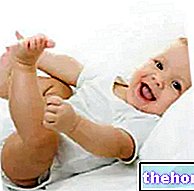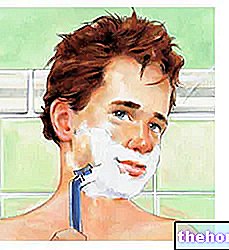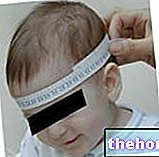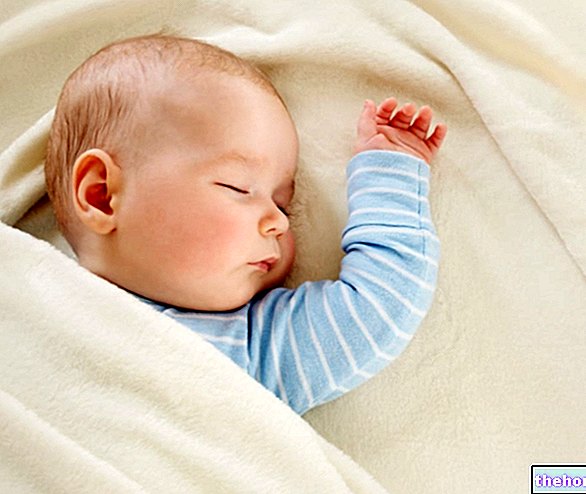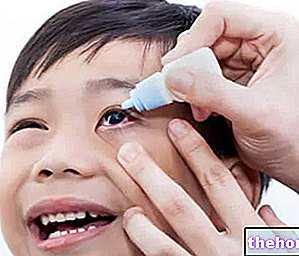Enuresis is the scientific term for involuntary loss of urine. When it occurs during the night it is commonly referred to as "bedwetting".
It is a different disorder than urinary incontinence and pollakiuria.

On the other hand, it is not uncommon for it to occur until adolescence and it is estimated that it affects 1% of adults.
Peeing in bed causes quite significant psychological and social discomfort, especially in post-pubertal subjects.
To be defined as such, nocturnal enuresis must:
- Repeat and show up at least 2 times a week for 3 consecutive months
- Of interest to individuals over 5 years of age
- Be independent of drugs and clinical conditions.
The published material is intended to allow quick access to advice, suggestions and general remedies that doctors and textbooks usually dispense for the treatment of "Nocturnal Enuresis; these indications must in no way replace the opinion of the treating physician. or other healthcare specialists in the sector who are treating the patient.
What to do
In case of nocturnal enuresis it is necessary to identify the triggering causes and act to reduce or counteract their action.
First of all, it is essential to check the family history and any "predisposition of parents or family members (grandparents, uncles, cousins, etc.).
Keep in mind that if a parent has suffered from bedwetting, the child has a 40% chance of inheriting this tendency. If it affects both, the odds go up to 70%.
In the event that the parents have spontaneously resolved the discomfort, the forecasts are favorable; it's usually just a matter of time.
On the contrary, it is necessary to investigate the possible causes responsible. Particularly:
- Rule out a delay or "defect" in physical development, which can involve:
- Insufficient bladder capacity. It should be borne in mind that it sometimes remains for life but this does not mean that the person will continue to suffer from bedwetting. The diagnosis is made with ultrasound systems and specific tests.
- Underdevelopment of physiological alarms that signal the need to urinate, measured with certain neurological tests.
- To understand if the production of urine during the night is excessive: it is not certain that it is a real disorder, but sometimes it can depend on the hormonal axis. It can be solved with small specific pharmacological doses.
- Rule out the presence of obstructive sleep apnea: this disorder causes a decrease in circulating oxygen and can have serious consequences.
- Reduce emotional problems: they are potentially responsible for bedwetting. At best, it is anxiety and general stress (moving house, loss of a family member, quarrels, excessive pressure, exaggerated commitment to study, work and sport, etc.). Sometimes, however, the psychological root of bedwetting concerns real traumas (bereavement, fear, etc.).
- If present, treat chronic constipation: the fullness of the colon occupies the space of the bladder, irritating it and decreasing the sensitivity to urination.
- In the case of a child, make them aware and help them understand the problem. It can be helpful to encourage him to pee regularly even during the day.
- Moderate evening activities: Nerve stimuli and some hormones such as adrenaline increase urine production and excretion.
- Adjust your diet (see below).
- Urge to empty the bladder well before sleep.
- Waking up or waking up the person once or twice a night to urinate and / or use a diaper. These are tricks that not all pediatricians share.
What NOT to do
- The first rule is NOT to blame those who suffer from nocturnal enuresis. As anticipated, emotional stress and certain psychological events can be the main cause. Further compromising the mood of a bedwetting person risks worsening the situation.
- Avoid playing sports or games late in the day.
- Avoid going to bed at the end of your strength. Deep sleep is generally positive but in the case of nocturnal enuresis it plays an unfavorable role.
- Avoid improper eating habits (see below).
What to eat
To avoid nocturnal enuresis it is advisable:
- Have dinner about 3 hours before sleep.
- Consume medium sized portions, without exceeding the total volume of the meal, which must be less than lunch.
- Go for naturally hydrated foods, even if not necessarily dry.
- Promote the intake of foods that do not solicit retention and subsequent production of urine; they must have the following characteristics:
- Little sodium.
- Medium-sized glycemic index and load.
- Absence of stimulating and diuretic molecules.
What NOT to Eat
AVOID:
- Nutrition close to sleep.
- Overdo the portions and the total quantity.
- Liquid foods: broths, purees, cups of milk, smoothies, etc. that increase urine output.
- Too much fresh fruits and vegetables which increase urine output.
- Very salty foods: they increase thirst and promote renal excretion after a few hours.
- Sugary products: they increase thirst and promote water retention immediately after the meal, which is eliminated within a few hours.
- Diuretic products: they increase the renal filtration and the nocturnal accumulation of urine.
- Drinks containing stimulants: they also have a diuretic effect.
- Drink more than a glass of water between dinner and sleep.
Natural Cures and Remedies
There are no natural cures and remedies for primary or idiopathic nocturnal enuresis.
Pharmacological treatment
Pharmacological remedies for nocturnal enuresis are mainly:
- Desmopressin: compensates for the deficiency of the vasopressin hormone (ADH) responsible for the reduction of renal filtration during sleep. It should be taken by the child (from 9 years of age) shortly before the night's rest. The most common form is the nasal spray. The only side effects that may occur are: nasal irritation and occasional headaches.
- Imipramine: not recommended for children. It is a tricyclic antidepressant that also works by relaxing the bladder and increasing its capacity. The side effects are different. It can be addictive.
- Oxybutynin: is an anticholinergic which is also useful in muscle relaxation of the bladder. It is more suitable for daytime enuresis.
Prevention
Prevention of nocturnal enuresis consists of:
- If present, exclude or treat the primary causes.
- Reduce Stress.
- Moderate urine production with diet and an appropriate lifestyle.
- Urinating before sleep.
- Avoid constipation.
- In the case of a child, raise awareness and educate him.
- If necessary, wake the baby once or twice a night or use a diaper.
Medical treatments
There are no known medical treatments for nocturnal enuresis independent of primary causes.
If the etiology is emotional, various psychotherapy systems including neuro-linguistic programming (NLP) may be useful in mature subjects.

